What we do
- Design, prototype and build software and digital tools
- Deliver trainings and provide strategic advice
- Facilitate the sharing of knowledge and resources between progressive organisations
How we work
We try to take an intersectional and systemic approach to our work, collaborating with a broad range of organisations to imagine and build radically different futures. We place a strong emphasis on listening to organisers’ needs, amplifying the work that they are doing already and building internal digital capacity within their organisations.
We constantly look for ways that we might cross-pollinate and share knowledge between the different groups that we work with. Through our work, we’re trying to build a supportive community of practice where people can learn from each other.
Iterative cycles
We work in agile sprints: short bursts of focused activity where we continually inspect our progress, adapt the plan and redistribute work within the team. We always follow the same iterative process:
- Build something lightweight
- Test it with real people
- Adjust and iterate based on what we’ve learned
Our approach to technology
Although we sometimes describe ourselves as technologists, we’re critical of technology, particularly when it reduces people’s quality of life. We don’t think that digital technology is ever neutral, nor do we think it’s a solution to social and political problems on its own.
However, whether we like it or not, much political organising happens online these days. We believe that technology can be an effective way to save time and scale up autonomous groups. We see technology's role as an augmentor and connector — one way to facilitate people to meet each other, form relationships and build power.
We're interested in how you can repurpose the innovations and techniques from the tech industry and apply them to grassroots activism instead. Digital technology is ubiquitous and it can be powerful when used to facilitate distributed groups, connect people, save time or scale up activities.
We don’t jump straight into building custom digital tools. We try to make thoughtful interventions, which sometimes involve using off-the-shelf tools, or custom ones, or simply training or facilitating people to use technology more effectively. Usually it’s a mix of all of these things.
On worker cooperatives
We’re a worker cooperative because we think that how we work hugely impacts what we make. If our goal is to enable radical change, we need to begin by questioning the entire structure of our work.
A cooperative is an organisation democratically owned and run by its members. We work together, as equals, to help everyone in the group. We support each other and contribute our own particular skills and experience for our mutual benefit and for the cooperative as a whole.
We see cooperatives as one way of prefiguring an alternative future. We want to imagine and practice a different way of working together: one that centres cooperation, interdependence, democratic participation and sustainability, rather than profit, growth and individual success.
Our shared vision
We imagine diverse communities rooted in care and reciprocity working together to achieve ecological and social justice. A just, abundant future where people have the tools and confidence to effectively organise themselves; where it’s easy to unionise, start a food co-op or organise a protest. Cooperatively-run workplaces and platforms powered by lightweight, convivial technologies rooted in an ethos of maintenance and care. A resilient global network of local communities with the power to make decisions over their own lives. A world where we’ve learned to live in equilibrium with our environment and in kinship with other humans and more-than-humans.
Our values
We are a group with a set of values, and each one of us is an individual with a set of needs, and this is where our work begins. Our first obligation to ourselves and each other is to try and embody our values in how we relate to and interact with each other, as we start each day of work together.
Solidarity
We act in solidarity with those who are struggling against all forms of oppression. Solidarity is power. Diversity is strength.
Interdependence
We cultivate reciprocal relationships where we can practice collaboration and generosity. We don't believe in competition or scarcity. We see the commons as our opportunity to have the biggest impact.
Thoughtfulness
We understand and respect the complexity of political and technological structures. We trust people to know their own context best. We think before intervening and intervene at the appropriate scale. We listen deeply and reflect with intention.
Practice
We believe learning is an endless journey. We use theory and practice to intensify each other. We are curious, creative and interdisciplinary. We ask questions and lean into change.
Optimism
We approach problems as challenges and see failures as opportunities to grow. We remember the capacity of people to collectively build a better future. We trust that people can.
Aside from our core values, we also adhere to the Cooperative Principles and the Design Justice Principles.
Who we are
Alex has worked as communication, technology and political strategic advisor for a range of campaigns and organisations at different scales: from national electoral campaigns to grassroots anti-deportation work. He has worked as a senior software engineer in major startups, including Lightful, where he was in charge of technical leadership and strategy. He is on the board of New Economy Organisers Network (NEON).
Anna has over ten years of experience across a diverse range of roles in design, communications, and project management. She has worked with a variety of organisations: local government; educational institutions; not-for-profits, such as Amnesty International , Generation Zero and Hackney Carers Centre ; design studios—most recently Studio Lutalica . She also co-runs Broad Bikez , a not-for-profit that offers bike maintenance and education led by women and LGBTQ+ people. In her creative practice, Anna has had essays published by Kajet Journal , href zine , and Digital Cultures Institute NZ, and exhibited work in online and offline spaces across New Zealand, UK, Germany, Spain and Croatia.
Arbnor works at the intersection of design and politics. He previously worked as a strategic designer to support progressive missions such as The World Transformed, the UK’s biggest left-wing political festival, and Common Wealth, a think tank reimagining ownership.
Everin has never introduced themself as a software engineer, despite doing the job of one for almost 10 years. Trying to avoid categorisation as an individual is — for them — a ‘personal-as-political’ micro-project, and is just as important as making sure they expend their work energy on meaningful macro-projects. This has seen them involved in a range of organisations, all connected by a common theme: facilitating large numbers of people to coalesce and become active around a political issue. They were lead developer on projects like schoolcuts.org.uk (2016–17), welevelup.org (2018), organise.network (2018–21), nochildleftbehind.org.uk (2021), and have worked or collaborated with organisations like 38degrees.org.uk , neu.org.uk , changelab.io , outlandish.com and the-open.net . They are on the steering group for StrikeMap .
Gemma Copeland is a designer, organiser, and educator. Her practice centres on building infrastructures to foster more creative and resilient movements, and exploring how arts and culture can expand our collective political imagination. She currently serves on the board of workers.coop, the member-led federation of UK worker cooperatives. She organises Materials, an annual festival of visual culture and politics, and has previously been part of collectives like UVW Designers + Cultural Workers and Evening Class. She teaches at the Free University of Bozen-Bolzano, where she supports eco-social design students to examine how and why they work, exploring diverse economic strategies and feminist approaches to organising. Prior to joining the co-op, she led digital design projects in the United Kingdom, The Netherlands and Australia, primarily for political organisations, cultural institutions and universities.
Jan writes software, designs digital systems, runs educational programmes, and advises groups on political, organisational and security strategy at the co-op. His work is informed by experience of organising with workers, residents and political activists in different movements from 2015 to present. Before co-founding Common Knowledge in 2018, Jan worked in commercial tech startups and progressive political tech projects, and previously studied art, design and global politics at SOAS. Alongside work he is currently studying community learning & development at the University of the West of Scotland.
Joaquim is a software engineer with a background in building easy-to-use data tools. He has worked for organisations like Kew Botanical Gardens on tools to assist on botanical projects and on large scale ecommerce tooling. Joaquim‘s ambition is to develop technology that facilitates self-governance at a community- or society-wide level, enabling the undertaking of large-scale projects without strict hierarchies.
Thank you
We feel deeply grateful to everyone who has worked with us or supported us over the years, including:
John Evans, Max Ryan, Sonia Turcotte, Joe Todd, James Moulding, Ruairidh Paton, Chris Devereaux, Chloe Montgomery, Shauna Buckley, Yuli Serfaty, Ilyanna Kerr, Robbie Blundell, Richard Olsson, Daniel Sestrajcic, Cade Diehm, Polly Robbins, Dan Sofer, Pete Burden, Lucy King, Max Gerber, Ella Fitzsimmons, Siôn Whellens, Michael Oswell, Becky Bond, Lizzie O'Shea, Cassie Robinson and Will Stronge.
Also thanks to our fellow CoTech co-ops : Code-Operative , Agile Collective , Outlandish , Jarrow Insights , Good Praxis , Founders and Coders , The Developers Society , Yalla , Animorph , We Are Open and many more!














